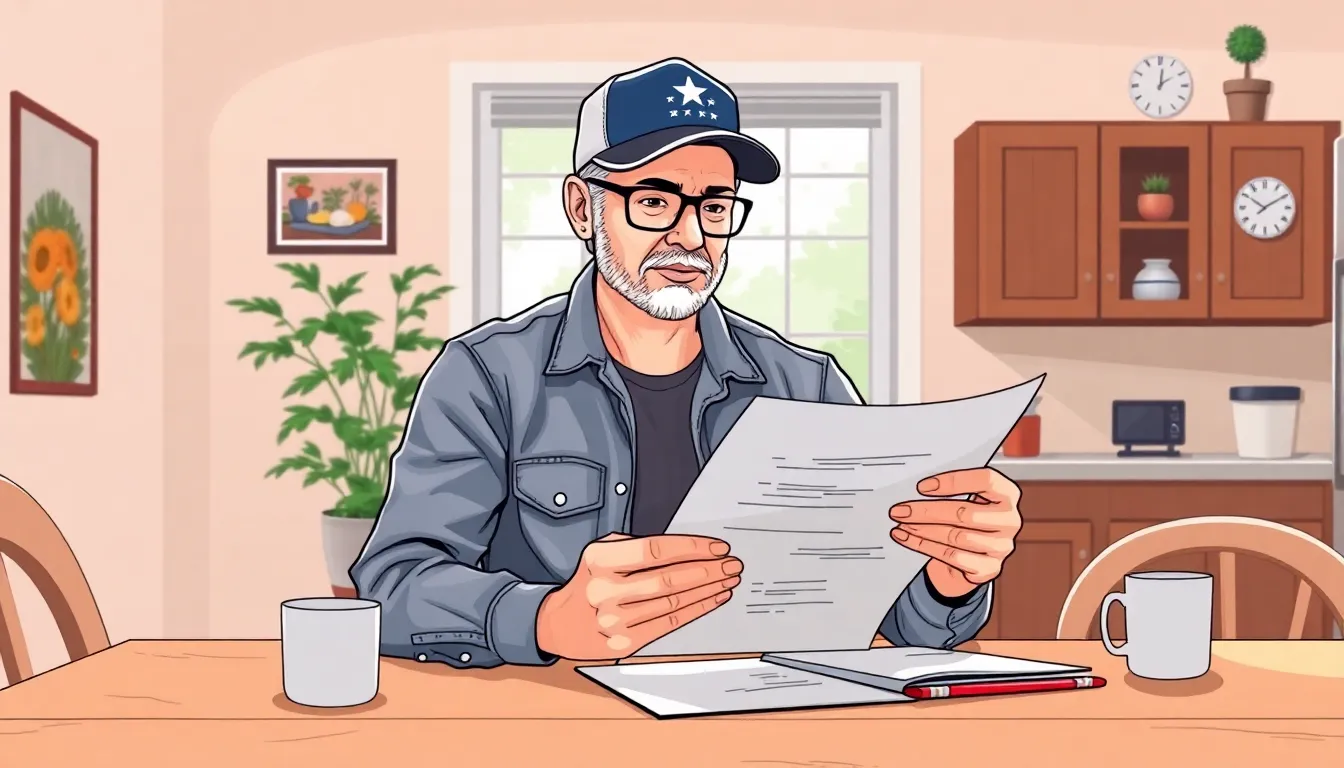Table of Contents
ToggleNavigating the world of home loans can feel like trying to find a needle in a haystack, especially if bad credit is part of the equation. But fear not! For veterans and active-duty service members, VA loans offer a beacon of hope. These loans come with unique benefits that can help turn the dream of homeownership into a reality—even when credit scores aren’t shining like a new penny.
Understanding VA Loans
Veterans and active-duty service members benefit from VA loans. These loans exist to support homeownership and offer unique advantages.
What Are VA Loans?
VA loans are mortgage options guaranteed by the U.S. Department of Veterans Affairs. They target eligible veterans, active service members, and certain members of the National Guard and Reserves. These loans feature no down payment requirements, often making homeownership attainable for those facing credit challenges. Interest rates tend to be competitive, resulting in lower monthly payments for borrowers. Additionally, VA loans bypass the need for private mortgage insurance, further reducing overall expenses.
Benefits of VA Loans
VA loans come with numerous benefits that set them apart from conventional mortgages. No down payment stands as a primary advantage, allowing veterans to purchase homes without substantial initial costs. Lower interest rates help keep monthly payments manageable, providing financial relief. VA loans also offer flexibility in credit score requirements, accommodating borrowers with bad credit. Closing costs typically fall below those of standard mortgages, ensuring lower barriers to entry. Lastly, VA loans provide lifetime benefits, enabling repeated use for purchasing homes or refinancing existing mortgages.
Bad Credit and VA Loans


Bad credit can pose challenges for individuals seeking home loans. However, VA loans offer unique opportunities for veterans and active-duty service members, even with less-than-perfect credit scores.
Defining Bad Credit
Bad credit typically refers to a credit score below 580. Credit scores between 580 and 669 may also be considered subprime. Factors influencing credit scores include payment history, credit utilization, and length of credit history. A low score often results from missed payments or high debt levels, making it crucial to understand these influences when applying for a mortgage.
Impact of Bad Credit on Loan Approval
Bad credit generally complicates the loan approval process. Applicants with lower scores may encounter stricter lending requirements. VA loans, however, tend to be more flexible in their credit evaluations. Many lenders accept VA loan applications from individuals with credit scores of 620 or higher. While bad credit might not disqualify a veteran from obtaining a loan, it may affect the interest rates offered, leading to increased monthly payments. Understanding these factors helps veterans navigate the mortgage landscape effectively.
Qualifying for VA Loans with Bad Credit
Obtaining a VA loan with bad credit isn’t impossible. Potential homeowners should understand the specific criteria for approval.
Minimum Credit Score Requirements
Lenders generally require a minimum credit score of 620 for VA loans. Some may accept lower scores, depending on other factors. Veterans and active-duty service members may still qualify despite low credit scores. It’s essential to find a lender willing to work with unique financial situations. VA loans do not have a specific credit score threshold mandated by the Department of Veterans Affairs, giving more flexibility in qualifying. Individuals with worse scores might face higher interest rates, but options remain available.
Additional Factors Influencing Approval
Credit scores are just one part of the approval process. Lenders also evaluate payment history and current debt levels. Employment status and income stability play significant roles in determining eligibility. Many lenders assess the debt-to-income ratio, with a recommended maximum of 41%. Assets can provide additional security for lenders, making approval more likely. Consistent income from a job or other sources strengthens applications. By focusing on these aspects, individuals can improve their chances of securing a VA loan, even with bad credit.
Improving Your Chances of Approval
Improving the likelihood of VA loan approval is achievable with strategic planning and steps. Understanding how to enhance credit scores and gather necessary documents plays a crucial role in the process.
Steps to Improve Your Credit Score
Improving a credit score involves actionable steps. Paying bills on time can significantly influence credit ratings. Reducing credit card balances lowers credit utilization, which positively impacts scores. Checking credit reports for errors promotes awareness and allows for corrections. Establishing new credit accounts responsibly aids in building a positive credit history. Developing a budget ensures consistent payments, fostering reliability in lenders’ eyes.
Gathering Necessary Documentation
Gathering essential documentation streamlines the loan approval process. Collecting recent pay stubs showcases income stability to lenders. Obtaining tax returns for the last two years provides a comprehensive view of financial health. Compiling statements for bank accounts and investments illustrates overall financial assets. Documentation of any debts helps lenders assess financial obligations accurately. Including a Certificate of Eligibility shows entitlement to VA loan benefits. This information enhances the application, making it more appealing to potential lenders.
Alternatives to VA Loans with Bad Credit
Exploring alternatives offers additional options for individuals with bad credit seeking home financing. Two prominent alternatives include FHA loans and conventional loans.
FHA Loans
FHA loans provide a viable option for those with credit challenges, requiring a minimum credit score of 580 for a 3.5% down payment. Individuals with scores between 500 and 579 may qualify with a 10% down payment. These loans feature flexible qualification criteria, accommodating those with lower credit scores. Mortgage insurance premiums apply, ensuring protection for lenders against defaults. This type of financing allows potential homeowners to enter the market even with financial hurdles. FHA loans also maintain lower closing costs compared to conventional loans, making them accessible for many buyers.
Conventional Loans
Conventional loans may serve as another alternative, though they typically require higher credit scores ranging from 620 to 640. Borrowers with strong credit histories can secure competitive interest rates and flexible terms. Lenders often consider income stability and debt-to-income ratios when evaluating applications. Lower credit scores can lead to higher interest rates or larger down payments, so understanding these factors is essential. Selecting a conventional loan with bad credit involves weighing the costs and potential advantages against other financing options. Engaging with a knowledgeable lender can help clarify eligibility and navigate available choices.







